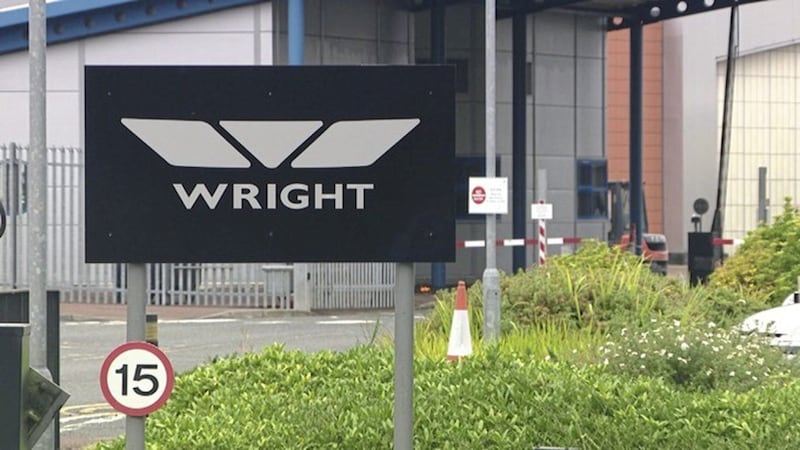THE scale of Ballymena firm Wrights Group's debt when it went into administration last month has been laid bare in a report by Deloitte.
And apart from Invest NI, to whom it owed £2.5 million, it seems likely its creditors will only get back a tiny fraction - if any - of their outstanding money.
A progress report from administrator Deloitte reveals that the bus-builder owes more than £60 million creditors, which includes £38.1 million due to Bank of Ireland, a secured creditor.
"Based on currently available information, we anticipate there will be sufficient asset realisation to repay Invest NI in full but not sufficient to pay Bank of Ireland in full," the report says.
There are a number of preferential creditors, mainly relating to Wrights and its sister companies for wages and some redundancy payments.
But unsecured creditors with non-preferential claims are owed more than £20.6 million.
Read More: Wrightbus sale confirmed - now axed workers must reapply for their jobs
And given that there is insufficient assets to pay even a secured creditor in Bank of Ireland, they are likely to get nothing.

The report reveals that Wrights is in hock to 900-plus companies in more than 20 countries including Malaysia, China, Canada, Poland, Turkey and Germany.
At least one of those creditors is owed more than £1 million, while scores of its suppliers are out six-figure sums.
Among them, Lurgan-based Electronic Excellence Ltd, which specialises in the design and supply of cable assemblies and interconnect solutions, is owed £182,711.
But some of the amounts are worthy of a petty cash tin, with a Lisburn hydraulics firm owed a measly £7.68 and a company in Newcastle out just £8.16.
Wright Group also owes money to several hotel businesses in the Ballymena area, including £3,799 to the Galgorm Manor and £65 to the Adair Arms.

Among the hundreds of creditors is Queen's University, which is listed as being owed £268,561.
In 2016, to mark the Wright Group's 70th anniversary year, the William Wright Technology Centre, named after the company's founder, was established to develop cleaner environmental technology for advanced passenger transport in the UK and around the world.
At the time Wrights pledged to invest £300,000 in the facility, though there had been some speculation as the time of the administration that that money hadn't been paid. The university wouldn't comment.
Deloitte's report shows that the group's performance has declined since 2017 because of a fall in turnover and profit margin, and in the first eight months of this year its accounts showed a loss of £19.5m
The administrators say the decline is due to a number of factors, including a slowdown in the UK bus market, unforeseen inefficiencies, consolidating its Northern Ireland operations into a single facility, and loss making contracts in South East Asia.
The company realised in May that is was in dire straits and had to be sold, and at that stage its appeals for a short-term cash injection were met by Invest NI and Bank of Ireland, who each invested £2.5m to keep the business ticking over.
When a buyer couldn't be found by September, the firm went into administration with the loss of 1,145 jobs (66 posts were retained to assist with the administration process), bringing to an end 73 years of ownership by the Wright family.
However, in October English industrialist Jo Bamford, son of JCB chairman Lord Bamford, agreed to buy Wrights after a protracted dispute over land ownership was resolved.








